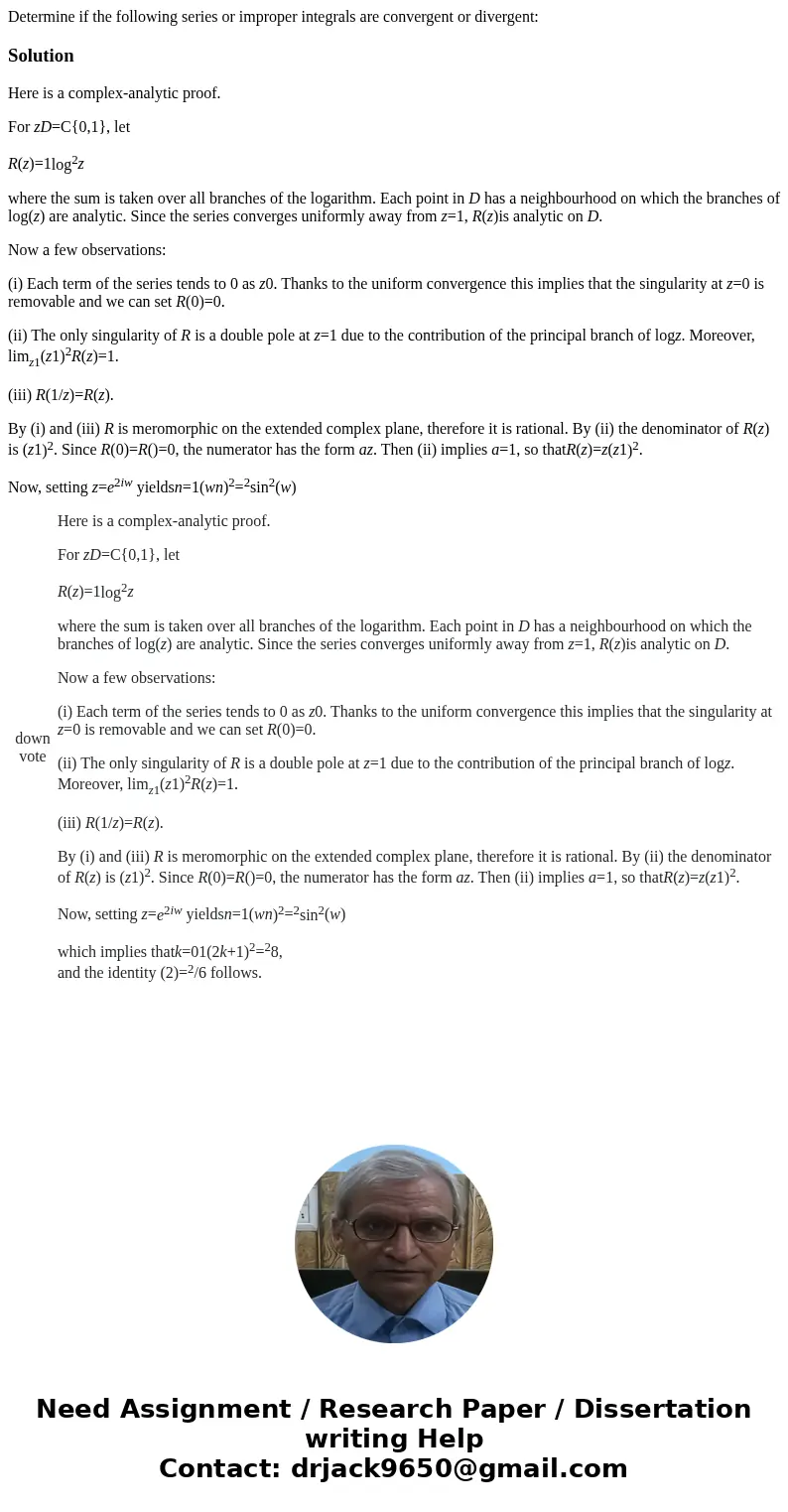Determine if the following series or improper integrals are convergent or divergent:
Here is a complex-analytic proof.
For zD=C{0,1}, let
R(z)=1log2z
where the sum is taken over all branches of the logarithm. Each point in D has a neighbourhood on which the branches of log(z) are analytic. Since the series converges uniformly away from z=1, R(z)is analytic on D.
Now a few observations:
(i) Each term of the series tends to 0 as z0. Thanks to the uniform convergence this implies that the singularity at z=0 is removable and we can set R(0)=0.
(ii) The only singularity of R is a double pole at z=1 due to the contribution of the principal branch of logz. Moreover, limz1(z1)2R(z)=1.
(iii) R(1/z)=R(z).
By (i) and (iii) R is meromorphic on the extended complex plane, therefore it is rational. By (ii) the denominator of R(z) is (z1)2. Since R(0)=R()=0, the numerator has the form az. Then (ii) implies a=1, so thatR(z)=z(z1)2.
Now, setting z=e2iw yieldsn=1(wn)2=2sin2(w)
| | Here is a complex-analytic proof. For zD=C{0,1}, let R(z)=1log2z where the sum is taken over all branches of the logarithm. Each point in D has a neighbourhood on which the branches of log(z) are analytic. Since the series converges uniformly away from z=1, R(z)is analytic on D. Now a few observations: (i) Each term of the series tends to 0 as z0. Thanks to the uniform convergence this implies that the singularity at z=0 is removable and we can set R(0)=0. (ii) The only singularity of R is a double pole at z=1 due to the contribution of the principal branch of logz. Moreover, limz1(z1)2R(z)=1. (iii) R(1/z)=R(z). By (i) and (iii) R is meromorphic on the extended complex plane, therefore it is rational. By (ii) the denominator of R(z) is (z1)2. Since R(0)=R()=0, the numerator has the form az. Then (ii) implies a=1, so thatR(z)=z(z1)2. Now, setting z=e2iw yieldsn=1(wn)2=2sin2(w) which implies that k=01(2k+1)2=28, and the identity (2)=2/6 follows. |
 Homework Sourse
Homework Sourse
